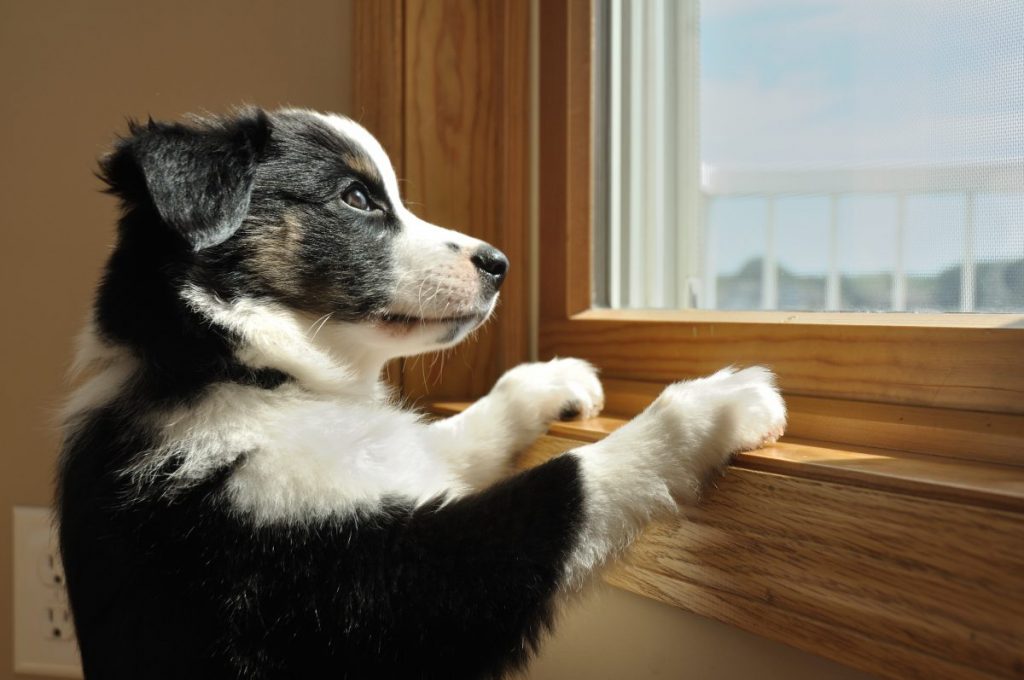New puppy owners should be aware of the different kinds of anxiety that their pets may experience along the way. Having this knowledge will prepare for you to spot and deal with anxiety in puppies. Pet owners should be aware of the following puppy anxiety disorders.
Separation Anxiety
A lot of puppies get anxious easily. The most common is separation anxiety. Some signs of separation anxiety do not only include whining and barking. Some can also act destructively when they feel anxious. To prevent separation anxiety, get your dog used to being alone. So it gradually and make sure you give them toys and other things to do to keep them preoccupied while you are away.

Noise Anxiety
Puppies get scared of loud noises. It could be thunder, fireworks, and even vacuum cleaners. When a puppy develops a fear of noises, it pants, shakes uncontrollably, and even hides. To help them during these scary times, you can prepare a crate or room that blocks out noise.
Social Anxiety
Some puppies get scared when they meet new people and other animals. Puppies with social anxiety may show fear or can become aggressive. Slowly introduce your puppy to new people and animals to help them get over their fear of strangers. Giving them treats and praise can also make your puppy feel better about themselves and develop confidence.
Phobias and Fears
Puppies can develop phobias of certain things or situations. Some of the signs of fear and phobia in puppies include trembling, panting, and hiding. Some develop minor fear which owners can soothe with treats, while others can become very aggressive. Your dog can learn to overcome their phobias by being slowly exposed to the trigger and following it up with positive feedback.

Generalized Anxiety
Puppies with generalized anxiety can become restless, hyperventilate, and lick themselves too much for unknown reasons. This is the type of anxiety that can be too difficult to spot and deal with. But according to animal behaviorists, generalized puppy anxiety can be lessened by giving them enough exercise, mental stimulation, and having a daily routine.
You always have to remember that puppies can have more than one kind of anxiety. Learning to spot the signs of anxiety can help you figure out what’s wrong with them and when to start getting help. With these tips your puppy can learn to get over their fears and become a happy and confident pet.

